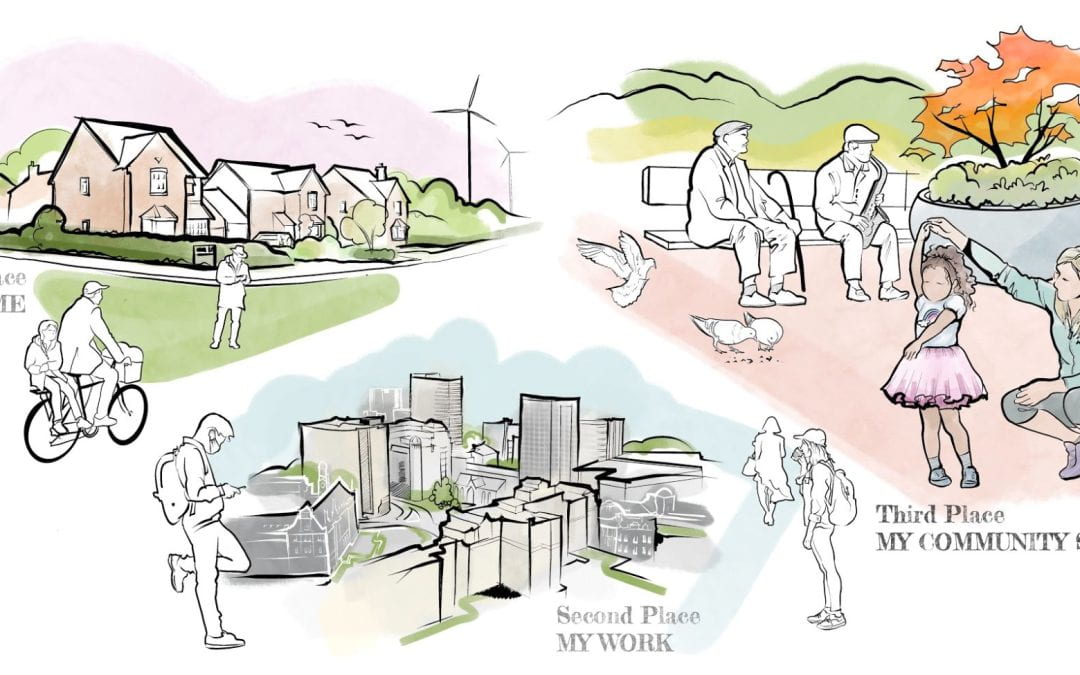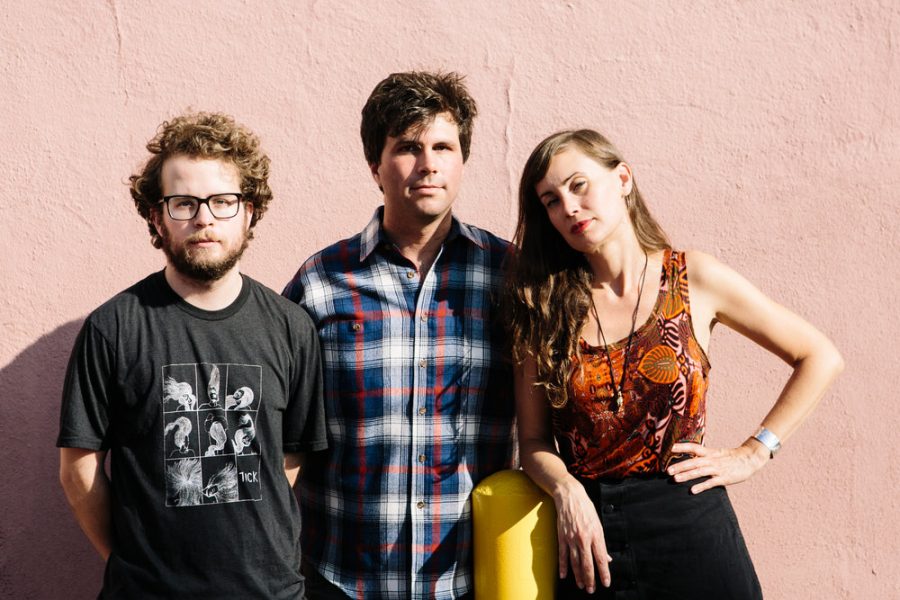Artist Spotlight: Cheekface Confronts The Dystopian Present
December 19, 2021
Cheekface is a rock band whose witty lyrics and catchy melodies embody the existential dread of modern American life with a unique blend of earnestness and cynicism. Founded in Los Angeles by Greg Katz, Amanda Tannen, and Mark “Echo” Edwards, the trio has released two albums, 2017’s “Therapy Island” and 2021’s “Emphatically No.”, both of which manage to combine fun and upbeat instruments with the depressing reality of the present to create unique social commentary which could only exist in this art form
Inspired by Lou Reed and Stephen Malkmus, Cheekface offers a unique vocal style of “talk-singing.” Katz’s vocals are largely monotone and sung at a conversational pace, but this often nihilistic-sounding style is contrasted with and often complimented by lyrics void of apathy. The lyrics constantly hit the listener with sharp political observations surrounded by quick wit, complimented by a knack for finding humor in the absurdity of contemporary life and an ability to tap into the deep grievances present in society’s id.
The second track on Therapy Island, “I Only Say I’m Sorry When I’m Wrong Now,” is an ode to failed aspirations of self-improvement. The title acts as a mantra of sorts, a far-off aspiration which is exceedingly relatable as many feel the need to better themselves in an attempt to compensate for the failures of the world. The narrator proclaims he will “only run the air when it’s warm out” and “only text the friends that I like now,” but these aspirations are surface-level and have little effect under the crushing weight of society’s numerous and grand issues. Cheekface, through deliberate word choice, finds that sometimes the simplest language can evoke the strongest reaction.

(Photo Credit: Shabnam Ferdowsi)
Many of the themes in Cheekface’s latest album, Emphatically No., reflect some of the most prevalent issues plaguing society during the current COVID-19 pandemic. In the fourth track, “Crying Back,” the narrator remarks “no pocket for your phone in your surgical gown/I’m sure it’s nothing, it’s probably fine.” This lyric could be a reflection of anger towards powers such as corporate leaders and the federal government neglecting to help a populous which has now given up on progress. Of course, I could be reading too far into this, but it feels relevant especially regarding the treatment of healthcare workers during the pandemic. A Morning Consult survey shows that nearly 18% of healthcare workers have quit their jobs since February 2020, and workers in the field continue to put both their physical and mental well-being at risk every day, yet they aren’t even allowed a “pocket for their phone.” The most interesting part is that every song on this album was written before the pandemic. When pressed by Melted Magazine about the songs’ current relevance, bassist Amanda Tannen said that “I really think we [the band] were writing about feeling isolated and feeling like government and politics were not addressing the concerns that we were feeling. We were feeling a lot of anxiety and despair. And then 2020 happened, and it seemed like the album had been written about it. The truth is, it had been written about stuff that was already out there. 2020 just highlighted, circled and put a bunch of stars around all of the feelings we already had.” The fact that none of the songs on Emphatically No. were written during the pandemic, yet feel so relevant, shows the degree of awareness the band has of the state of the world, and their ability to pinpoint these problems before they become immediately obvious speaks volumes about the deep understanding that comes with the band’s knack for observation. Their music seems to be a prediction of the future until the listener realizes that the problems that only now seem relevant have been here and shouting for attention the entire time.
Cheekface’s music can falter when it comes to the melodic side of things. The main chord progressions are usually very simple, with little present in the way of added flair. But the band is showing rapid improvement. Their recent single, “Next To Me (Yo Guy Version),” shows a massive leap in writing quality for the band. It features more diversity as Katz’s vocals expand beyond his usual monotone. This new level of enthusiasm and emotion in the performance adds a lot to the song. The song also features a full guitar solo, which is more important than it may sound. It shows that Cheekface is growing more confident in their abilities as composers, not just as writers. Letting the music take center stage as opposed to the lyrics is certainly a step in the right direction for the band and helps make each new song more fresh and distinct.
Overall, Cheekface’s ability to communicate the anxiety and dread that comes with the problems of modern life is truly remarkable. The band is charismatic and isn’t afraid to laugh at the absurdity of the world with its more quippy lyrics, but knows exactly how to strike specific emotions into the listener and point out the numerous issues we are complicit in dealing with and accept as part of life. The music can be forgettable at times, but the band is improving rapidly in that area. As the world seems to spiral downwards, Cheekface’s music only gets more poignant and relevant as it reminds us that we are not alone in this everyday struggle, and that if we really care about the problems we are faced with, we can create change.
Cheekface’s entire catalog of music, including their two full-length albums “Therapy Island” and “Emphatically No.,” is available on Bandcamp as well as all major streaming platforms.


















